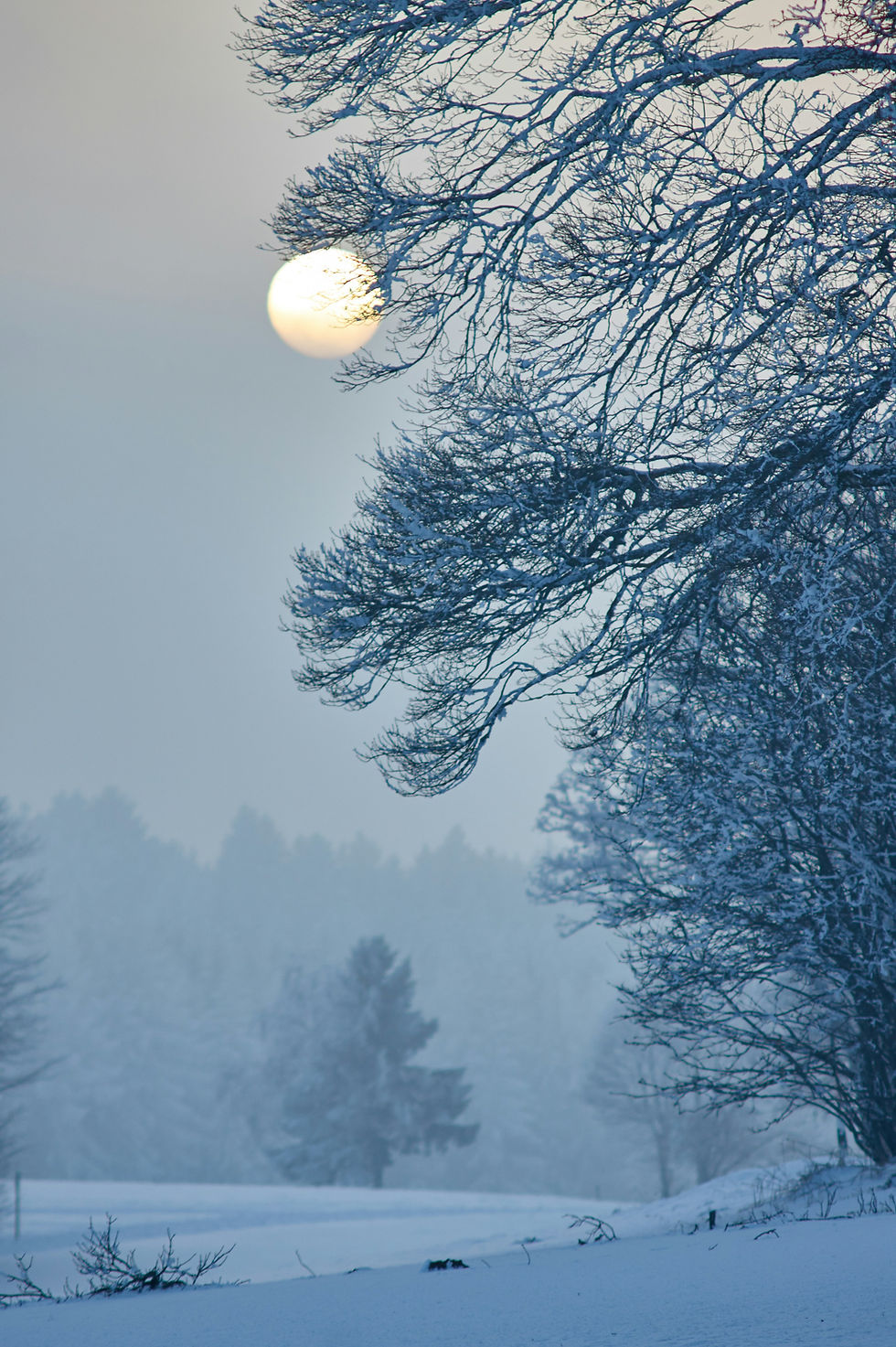Remaining in the Now
- michelle m. davis
- Mar 2, 2024
- 3 min read
Does your mind like to wander, explore the future or revisit the past?
If you’re like me, then the one place your thoughts rarely linger is in the present. Instead of being fully aware and focused on what’s currently happening, too often my mind fast forwards to next month or reminisces about the previous day. If this habit sounds familiar, then you, too, may find it challenging to remain in the now.
Never have there been so many tools and strategies to attain presence. Workshops, courses, books, and apps which promote mindfulness are easily assessable. While many have used meditation, yoga, and breathwork as avenues to being in the now, these practices only scratch the surface of what’s currently available. Tapping, cold therapy, body scans, digital detoxes, gratitude, and journaling are some of the numerous paths to presence.
Still, it's natural to allow our thoughts to wander. In fact, there’s nothing wrong with having an active mind. After all, wouldn’t it be boring to never play in the past or explore possibilities in the future?
However, whenever my head spends too much time contemplating what’s next (my tendency is to look ahead instead of behind), it tends to create “what if” scenarios. While this space sparks my imagination, creating excellent fuel for writing, loitering in the unknown sometimes causes me to needlessly worry or unnecessarily expend energy. More importantly, when I’m intent on knowing what’s next, I frequently miss out on what is. And once a moment’s passed, it’s gone. That’s why I’m trying to be more be aware and present—so I can more fully experience life.
Recently, remaining in the now has been more difficult. At first, I couldn’t understand why. I practice yoga, meditate, do “the work.” Why the sudden shift? Was it the planetary alignments? Or perhaps I was unconsciously struggling with turning sixty. Then again, caffeine could be the culprit.
Eventually it became clear the cause wasn’t the sky, my age, or coffee. Instead, I’ve been focusing forward because deep in my heart, I’m craving spring. Truthfully, I’m tired of winter. Its winds, cold temps, and snowfall are becoming old. I want to watch flowers bloom, hear the birds sing, and feel the sun’s warmth on my skin. And because I am not happy with the weather of “the now,” my mind’s been choosing to jump ahead in hopes of vanquishing winter and welcoming an unexpected, early spring.
However, it’s only the beginning of March. And spring in Central Oregon comes much later than it does in Pennsylvania. Like missing the East Coast’s vibrant pageant of yellow, orange, and red leaves each fall, I now yearn for daffodils that appear amid the melting snow, sprigs of early blooming forsythia, and the smell of onion grass. I guess I’m longing for the springs of my past—what I’d grown accustomed to.
Like with most of my life lessons, patience is a key component of this curriculum. While I know I cannot rush spring, I still want to. But there’s no controlling Mother Nature. I must simply make peace that despite Punxsutawney Phil not seeing his shadow on Groundhog’s Day, warmer weather isn’t around the corner in Bend. We have many more weeks of winter. And how I react to this truth is totally up to me. I can complain about the cold, or I can embrace the extra weeks of skiing, the cool air on my face, and the cozy fires at night.
So, I’ll continue to bundle up, accept there will be more snow, and wait until winter is ready to exit, making room for spring. While practicing patience and presence, I’ll allow for momentary thoughts of tulips and warm walks by the river—what Bend should be like in mid-May. After all, one can always hope.
But to be truly open to all that life offers, I must remember to gather these wandering notions and return to the present. Because it is in the here and now that life occurs. Connection, joy, and love appear when we show-up to what is. Only in the present do we undergo unique experiences, feel intense emotions, and make beautiful memories. Yes, we can revisit what’s already occurred and dream about our unknown futures, but life is meant to be lived in the now.













Comments